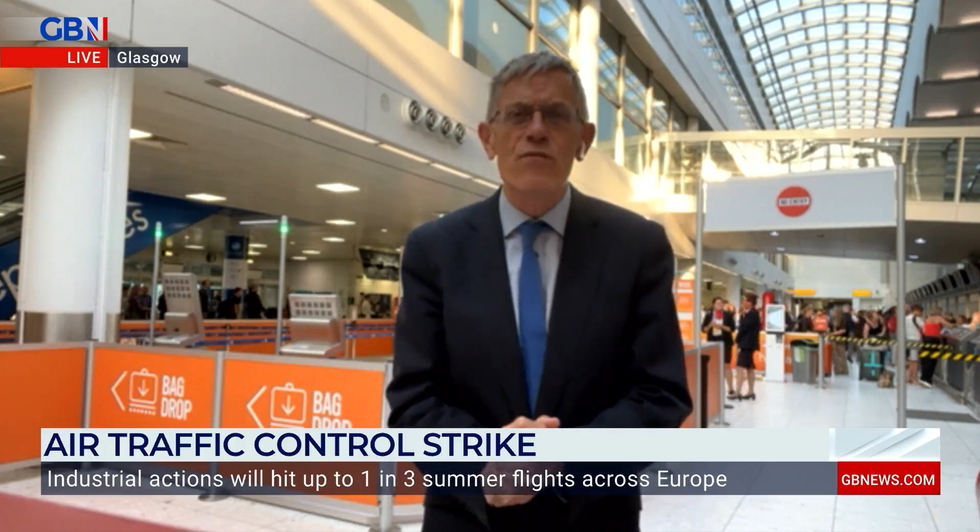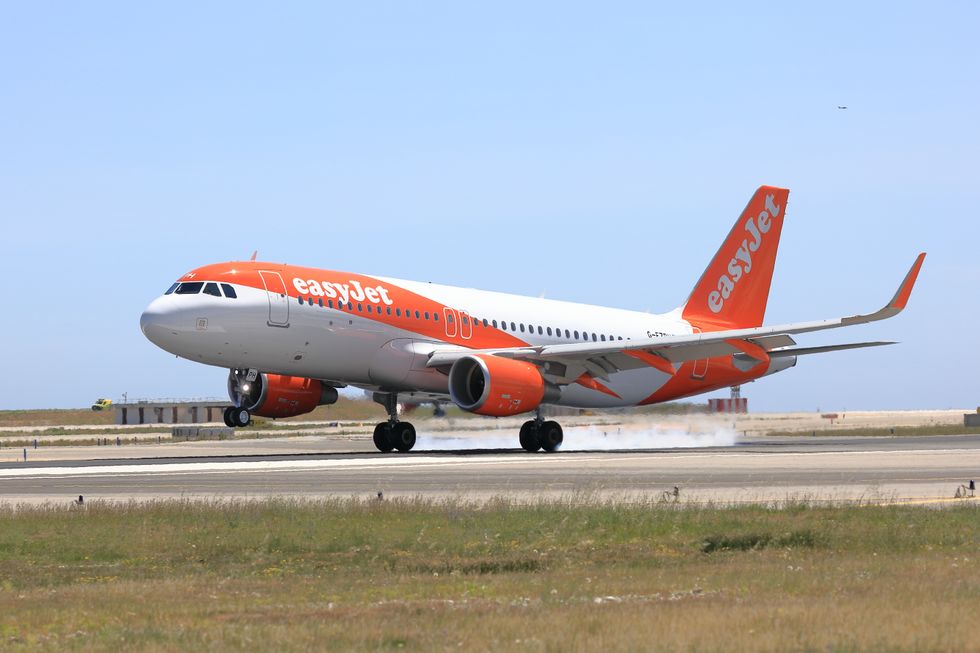
Passengers check in at Terminal 5 of Heathrow Airport in Middlesex
PA
Brussels-based Eurocontrol could cancel 12,000 flights due to strike action by air traffic controllers
Don't Miss
Most Read
Trending on GB News
A travel expert has issued British holidaymakers with one key piece of advice as strike action threatens to cancel up to one-in-three flights across Europe.
Affected dates for the walk out could be announced as early as Monday.
Workers have opted to take industrial action after talks about pay and rotas broke down.
Simon Calder, travel editor at The Independent, told GB News: “First of all, you should be really looking forward to the holiday, particularly if you haven’t had a proper family holiday since 2019, the vast majority of them will go ahead.

Simon Calder speaking to GB News from Glasgow airport
GB News
“And secondly just be really aware what your rights are.
“For instance, I was just hearing yesterday Easyjet been putting in some cancellations because they’ve been so overstretched at Gatwick.
“And people have been contacting me saying 'we’ve got this cancellation, what do we do?'
“And I just said find another airline, the airline has to get you to your destination on the same day.

EasyJet plane with its new livery landing at an airport
PA“And if they can’t get you there immediately, they’ve got to put you up in a hotel and give you your meals.
“Your European air passenger rights rules are very strong.
“Of course, then you’ve got the problem are there going to be enough flights to go around.
“But I think most people are going to be okay.”
 A stock image of a British holidaymaker in SpainReuters
A stock image of a British holidaymaker in SpainReutersThe industrial action could see up to 12,600 flights per day delayed or cancelled across Europe.
Eurocontrol previously said it would experience overloads on most days in key regions including Athens, Budapest, Reims and Marseille.
Similar warnings have been issued for peak days across London, Brussels, Barcelona, Zagreb, Nicosia and Warsaw.
The action comes after Eurocontrol said that around 33,000 flights will be made each day from July to mid-August.
The number marks an increase of more than seven per cent compared with the same period last year.








